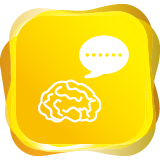 |
CCHU9042 Arts and Humanities
|
Course Description
Language is an indispensable part of human experience, and yet, the ability to construct linguistic structures to make oneself understood and to interpret correctly the structures that others have produced is, almost always, taken for granted. The understanding of this course description is, in fact, made possible by a number of highly complex linguistic/cognitive processes in our mind. A fundamental question that arises, then, is how we human beings come to have this ability to possess and apply knowledge of language. How is it possible to obtain knowledge of language? Is language unique and specific to human beings? What are the stages of language acquisition? There are a number of different hypotheses regarding how human beings obtain knowledge of natural language. On the “nature” side, researchers argue that human beings are born with the ability to acquire and process language. Proponents on the “nurture” side, however, think that our ability to use language is learnt, much like how our other cognitive and intellectual abilities are learnt. In this course, students will be taken through a critical survey of these hypotheses, and consider what the various views tell us about the nature of the human mind. This course is of relevance and interest to anyone who uses language.

Course Learning Outcomes
On completing the course, students will be able to:
- Appreciate the nature vs. nurture debate in language, and demonstrate awareness of the presence of the nature vs. nurture debate in other disciplines.
- Identify the basic issues regarding human beings’ ability to acquire knowledge of language.
- Compare and contrast the various behaviourist, nativist and social interactionist views on human beings’ ability to acquire knowledge of language.
- Use relevant information to critically evaluate the arguments that support or challenge the various hypotheses.
- Support their own views regarding the different theories of language acquisition by drawing relevant linguistic, cognitive, and philosophical evidence.
Offer Semester and Day of Teaching
Second semester (Wed)
Study Load
| Activities | Number of hours |
| Lectures | 24 |
| Tutorials | 8 |
| Reading / Self-study | 30 |
| Assessment: Essay / Report writing | 30 |
| Assessment: Presentation (incl preparation) | 42 |
| Total: | 134 |
Assessment: 100% coursework
| Assessment Tasks | Weighting |
| Tutorial participation and assignments/discussions | 15 |
| Review of articles | 20 |
| Poster, group presentation and/or debate | 40 |
| Written assignment | 25 |
Required Reading
Selected chapters from:
- Everett, D. (2013). Language: The cultural tool. London: Profile Books.
- Hurford, J. R. (2014). Origins of language: A slim guide. Oxford: OUP.
- Pinker, S. (2015). The language instinct: How the Mind Creates Language. London: Penguin.
Course Co-ordinator and Teacher(s)
| Course Co-ordinator | Contact |
| Dr O.S.C. Lam School of Humanities (Linguistics), Faculty of Arts |
Tel: 3917 2758 Email: osclam@hku.hk |
| Teacher(s) | Contact |
| Dr O.S.C. Lam School of Humanities (Linguistics), Faculty of Arts |
Tel: 3917 2758 Email: osclam@hku.hk |

